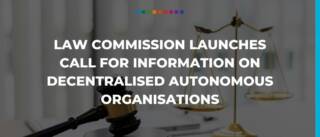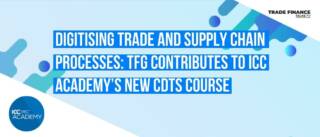Tradetech and deep tier financing: How emerging technology can help supply chains meet ESG standards
Alex Gray, head of trade finance at The London Institute of Banking & Finance, explains why the staff at trade banks will have an important role to play in gathering and utilising ESG data from supply chains
 Australia
Australia Hong Kong
Hong Kong Japan
Japan Singapore
Singapore United Arab Emirates
United Arab Emirates United States
United States France
France Germany
Germany Ireland
Ireland Netherlands
Netherlands United Kingdom
United Kingdom















